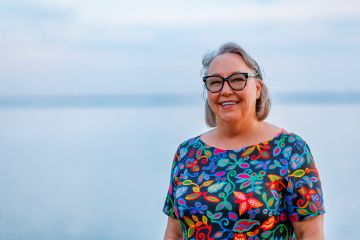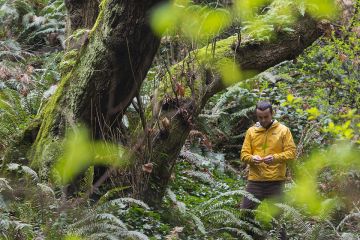Rare plant thrives in campus teaching garden
- Anne MacLaurin
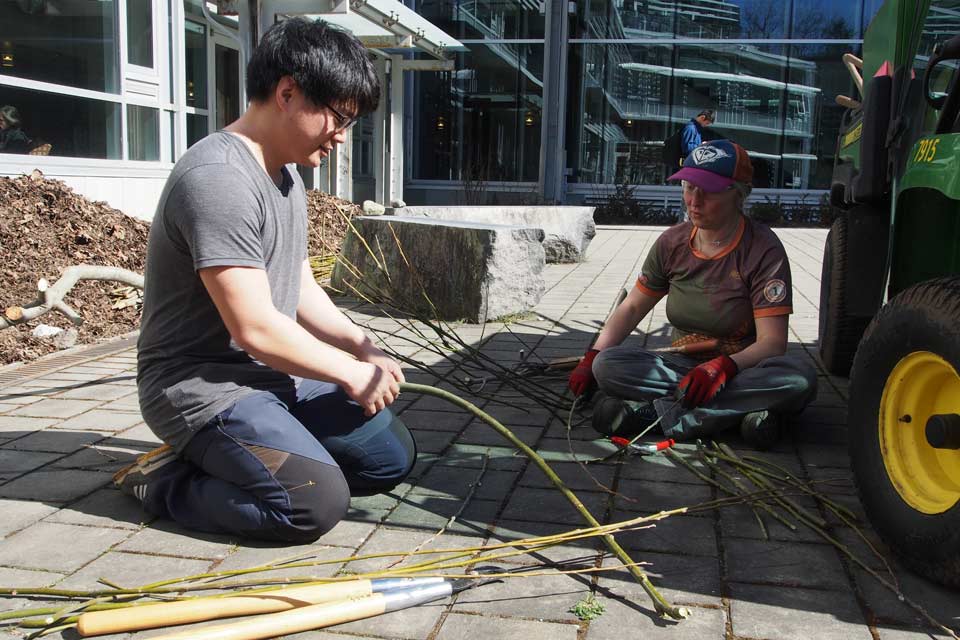
A cluster of rare pink star-shaped blossoms will soon be blooming in UVic’s David Turpin Native Plant garden—planted earlier this spring by ethnobotanist Fiona Hamersley Chambers and her environmental studies students.
Known as the Pink Sand Verbena (Abronia umbellata), this federally red-listed endangered species was considered extinct in Canada until it was rediscovered by local resident, Jim Hamilton, in 2000 along a beach on the BC West Coast Trail. Despite significant efforts by Parks Canada staff and a number of relocation projects around Vancouver Island, the plant has not thrived and is threatened by invasive beach grass and wave action.
“The Pink Sand Verbena is a perennial herb,” says Hamersley Chambers, “it has a very limited habitat range, preferring lower sand dunes, which are rare and often degraded in coastal British Columbia.”
Hamersley Chambers collected five seeds from Hamilton’s original plants in 2013, two of which she managed to germinate and successfully grow at her Metchosin Farm. From these first plants she now has a large bed with mature pink sand verbena, and many seedlings coming up on their own each year. Earlier in June, Hamersley Chambers and her students successfully transplanted the seedlings into the David Turpin Native Plant garden.
During her garden restoration workshops this year, Hamersley Chambers has taught her students not only about rare plants such as the Pink Sand Verbena but also how to practice plant management techniques that were once commonplace both here in coastal BC as well as Europe, Asia and other parts of the globe. Her students are ‘learning by doing’, coppicing willow to produce shoots for basket weaving and wattle fencing, transplanting springbank clover (the traditionally-cultivated food crop that Victoria’s Clover Point is named after), and planting the historic Haida and Ozette potato varieties.
“By managing and maintaining these plants, I learned about traditional ethno-botanical uses of these plants both here on the West Coast and in Europe and Asia,” says student, Melanie Apps.
Hamersley Chambers plans to continue her weekly workshops in the fall for all UVic students and faculty. She is grateful to Peter Roberts and UVic’s Facilities Management team for their support and ‘can do’ attitude.
To be notified of upcoming workshops, please send an email to fionac@uvic.ca. A related story about springbank clover appeared in the February 2018 issue of the Ring.
Photos
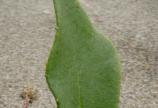
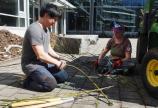
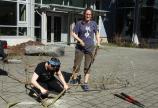
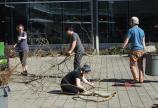

In this story
Keywords: plants, biodiversity, environmental studies
People: Fiona Hamersley Chambers
Publication: The Ring

